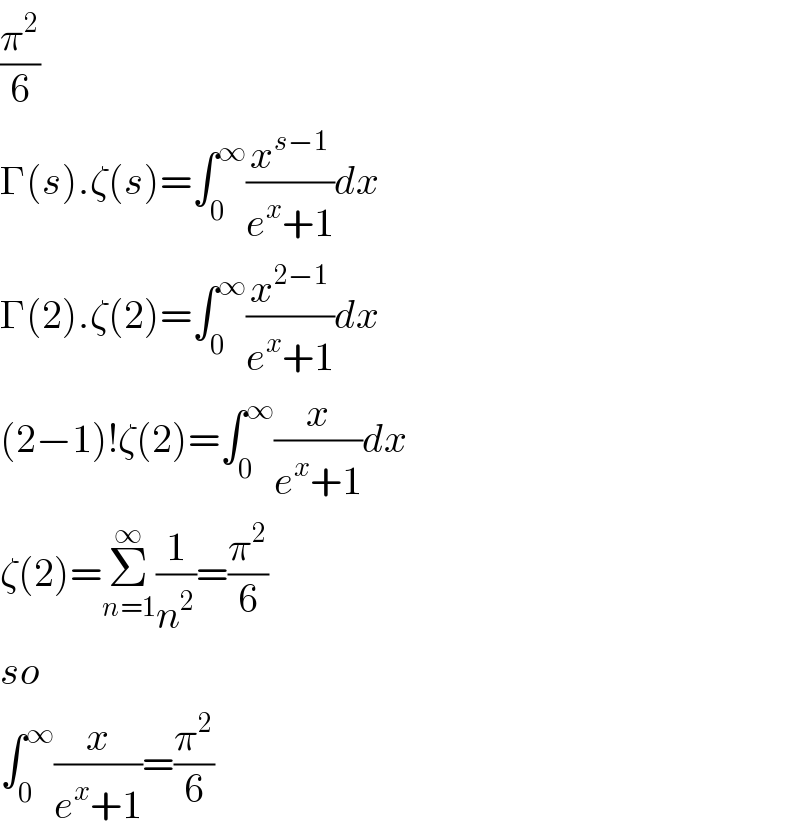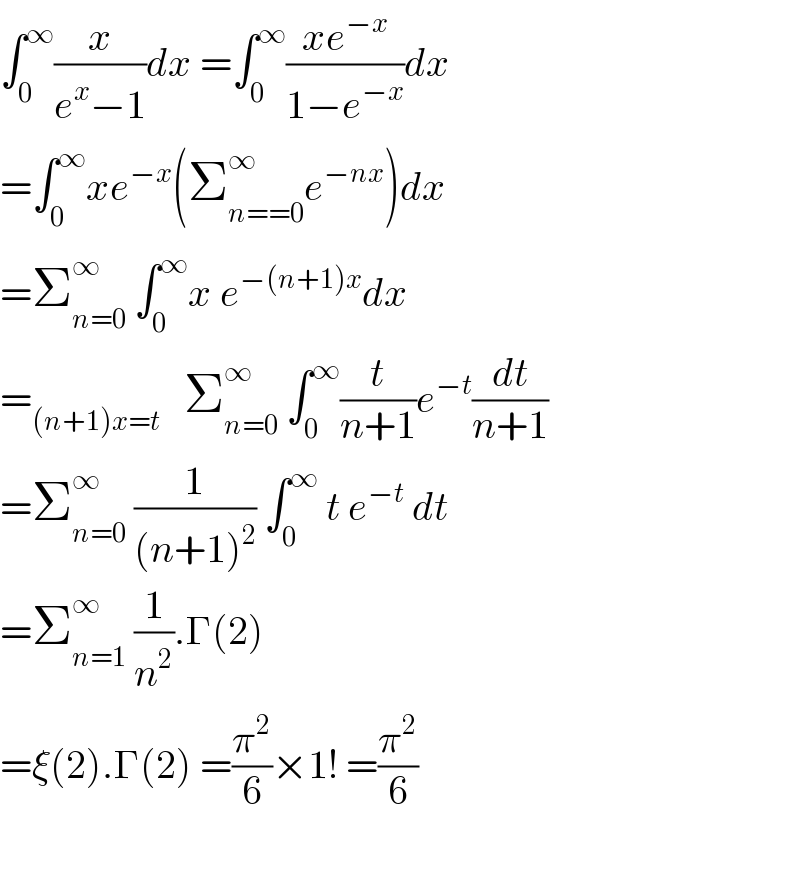
Question and Answers Forum
Question Number 104780 by Aziztisffola last updated on 23/Jul/20

Commented by Dwaipayan Shikari last updated on 23/Jul/20

Commented by Aziztisffola last updated on 23/Jul/20

Answered by abdomsup last updated on 23/Jul/20

Commented by Aziztisffola last updated on 23/Jul/20

Commented by mathmax by abdo last updated on 24/Jul/20

